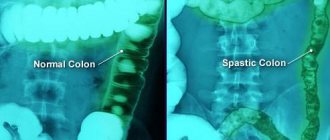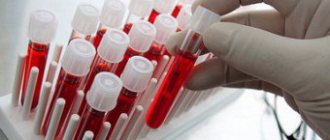Pregnancy is both the most important and difficult period. At this time, it is necessary to monitor any changes in the body; for this, regular screening studies are carried out.
One of the informative diagnostic methods is urine analysis. The density of the sediment, the presence of sugar and protein are assessed. Visually, you can determine the presence of cloudiness, color changes, and white flakes. Such changes are not uncommon in pregnant women and require increased attention.
During pregnancy, special attention is paid to women's health
Reasons for the formation of flakes
Everyone knows that the absence of urinary disorders is expressed in the quality of urine excreted: it should be transparent, light yellow, without visible impurities and a strong foreign odor. Proteins end up in urine, but in small quantities. During pregnancy, a value of 0.15 g/l is allowed. However, the urinary system reflects almost all pathological changes that occur in the body. Therefore, doctors in many cases turn to a general urine test. Failures can occur in any person, but in expectant mothers, certain changes occur incredibly often - due to the enormous load on the body when carrying a baby. In general, the appearance of flocculent formations in urine can be caused by the following reasons:
- A sharp change in diet: adherence to improperly designed diets, a reduction in food proteins due to the abandonment of meat and fish dishes when switching to a vegetarian lifestyle, or, conversely, a sharp increase in the consumption of protein products. With such changes in the body, protein metabolism is disrupted, and they enter the urine, forming an insoluble sediment in the form of flakes. At the same time, the level of proteins in the blood is increased.
- Infectious and non-infectious diseases of the urinary system: inflammation of the bladder (cystitis), impaired functional state of the renal pelvis, thrush, bacterial vaginosis. If flakes appear for this reason, then this symptom is necessarily accompanied by other manifestations (pain, pain, swelling, fever, changes in the amount and color of urine), and the level of protein in the blood may not be increased.
- Presence of gynecological diseases in women. Anatomically and functionally, the reproductive and urinary systems are very connected, therefore inflammatory processes affect urine formation, and mucous or purulent discharge during illness can enter the biomaterial and form a flocculent sediment there.
- Flakes can appear with such a dangerous condition as internal bleeding. This situation can be recognized by the accompanying symptoms - weakness, pale skin, loss of consciousness.
- With a lack of fluid in the body, urine becomes more concentrated and contains more salts per unit volume. A change in the chemical composition and reaction of the medium leads to the precipitation of proteins into an insoluble precipitate.
Symptoms
Experts put forward certain requirements for urine excreted in the absence of health problems. In many cases, when a person is not bothered by discomfort during urination, white discharge may be found in the biological fluid itself. They are the first signal of the formation of serious pathologies of the genitourinary system.
In most cases, when white discharge appears in the urine, patients also experience pain in the lower abdomen, as well as characteristic discomfort during and after bowel movements. If you notice the very first signs, you should immediately consult a doctor. If left untreated, complications may even lead to the need for surgery.
Additional risk factors during pregnancy
In pregnant women, due to their special physiological state, other reasons are added to this list related to an increase in the amount of blood and fluid in the body as a whole and, accordingly, the load on the kidneys:
- multiple pregnancy;
- large fruit;
- removal of the mucus plug before childbirth, which in some women comes out in parts, gradually and unnoticeably;
- gestosis, or late toxicosis, leads to metabolic disorders. It can be recognized by accompanying symptoms - the presence of edema and high blood pressure.
In the presence of these risk factors, the likelihood of such a manifestation increases markedly, so the doctor may give a referral for examination more often than usual.
If the cause of the sediment is pregnancy-related factors, in most cases no special treatment is required, only regular monitoring is necessary.
Treatment
Treatment in such situations should not be aimed at eliminating the consequences (white discharge in the urine), but at eliminating the original source of the disease (inflammatory process in the body). Only after passing all the necessary examinations, the doctor prescribes the treatment necessary to eliminate a particular disease. As a rule, after adequate treatment of the disease that caused the appearance of white flakes, the unwanted discharge itself disappears, which puts an end to the medical history of both the adult and the child.
Folk remedies to combat the problem
Even before the existence of modern medicine, people wondered why the characteristic unwanted discharge formed in urine. This led to the emergence of traditional methods of treatment. Their effectiveness has not been proven, and therefore sticking to them is an extremely risky undertaking, but some people are confident that they have a positive effect on the body.
For example, some of the most popular methods of treatment for cystitis among the people are the following:
- 0.5 kg of coarse table salt is heated in a frying pan, after which it is placed in a fabric bag, it is applied to the lower part of the abdominal cavity for half an hour.
- using a liquid or electric heating pad.
- taking hot baths using decoctions of plants that prevent inflammation (parsley root with turnip juice, juniper with rose hips), and other natural antibiotics are also used.
There is also a recipe for a decoction for oral administration:
- Mix an equal amount of bearberry leaves and flax seeds and pour boiling water over them.
- mix the crushed mixture of sage leaves, string, black currant with garden parsley seeds (3:1) and brew.
- dill seeds are poured with water in a ratio of 1:2.
You can drink the decoction both in the morning and in the evening.
However, such remedies usually act only at the initial stage of the disease.
Errors when taking tests
Very common reasons for the appearance of flocculent sediment in urine are simple mistakes in collecting biomaterial. That is, it is initially absent from the urine produced, but enters the vessel immediately at the moment of urination. This often happens in women, since mucous discharge from the genital opening can accidentally get into the biomaterial. Sometimes this result is caused by incomplete rinsing of soap from the skin - it can also manifest itself as sediment.
Therefore, if flakes appear in the test results for the first time, and there are no other obvious signs of any pathologies, the doctor can safely send you for a retake, again reminding you of the rules for collecting biomaterial. In particular, before taking the test, you need to wash yourself thoroughly; it is advisable to cover the genital opening with a clean cotton swab to prevent vaginal discharge from entering.
How to properly collect urine?
To prevent flakes from becoming a cause for unreasonable anxiety, a pregnant woman should know how to properly collect urine for analysis. This procedure is performed in the morning, after thoroughly toileting the genitals. But even this is not enough - mucus in the vagina is formed in increased quantities and may well end up in the jar. Additionally, it is recommended to use a cotton swab.
Use a clean jar, or better yet, a sterile disposable container. This completely prevents the entry of foreign substances from the outside. An average portion of urine is collected, after which it is immediately delivered to the laboratory. Even if stored in the refrigerator, unnatural sediment may form.
Thus, the appearance of flocculent inclusions in the urine of women is a fairly common phenomenon. It is associated not only with pathological changes in the genitourinary system, but also appears as a result of a violation of the analysis technique. Therefore, such a phenomenon may well occur during the physiological course of pregnancy.
Home test for flakes
With a high content of protein compounds that have formed an insoluble precipitate, they form flakes that are visible to the naked eye. They can be joined by epithelial cells, which are constantly exfoliated from the surface of the mucous membrane, and blood leukocytes. At home, you can conduct a simple test that can roughly indicate the condition of the body.
You need to collect the first portion of urine in one vessel, and the second in another. If there are flocculent formations in the first vessel, but not in the second, then it is very likely that the sediment is formed by epithelial cells or mucus discharge from the vagina.
If there are visible particles in the second jar, diseases of the urinary system may be suspected.
However, this test is very unreliable, so its results can only provide preliminary information. An accurate result is possible only with a laboratory examination.
Diagnostics
The most obvious and effective means of diagnosis is a general urine test. Not in all cases, the detection of white discharge in urine indicates the development of a similar disease, and the real causes most often do not pose any danger. Sometimes this is due to the fact that people refuse to observe basic hygiene rules, which is why foreign elements (grains of sand, grains, pieces of skin) get into the container during urine collection.
During laboratory tests, the doctor determines the nature and origin of the detected discharge. This will help determine the type of disease and the features of its development. Only after this is it possible to draw up any recommendations or strategies for treating the disease. Sometimes additional examination (ultrasound or CT) of the abdominal organs is necessary.
Before collecting urine, in order to exclude an erroneous diagnosis, the following procedures must be performed:
- limit the intake of foods that change the color of urine (carrots, beets),
- take a bath and thoroughly wash the perineum without using household chemicals,
- when collecting samples, use the fluid released in the middle of urination,
- the collected material must be immediately delivered to a medical institution for analysis.
What to do in this case
First of all, don't worry. During pregnancy, anxiety is very harmful, and there may not be any serious reasons for it. But you shouldn’t ignore this fact either: it may be the first signal of some kind of violation that needs to be quickly eliminated and complications avoided.
Therefore, you should definitely see a doctor as soon as possible after receiving the test results. It is advisable to report all the nuances that may be useful in establishing a diagnosis - the approximate frequency of urination per day, the presence or absence of pain and cramps, body temperature, changes in the condition of yourself and the child (based on the number of his movements - in the second half of pregnancy). The doctor will order additional examinations, analyze the diet - in general, he will look for the factor that provoked the disorder. All these appointments should be completed, since delays in diagnosing and treating diseases during pregnancy can harm both the mother and her child.
The woman herself must monitor her diet. Food must not only be safe in terms of harmful substances. It should also be balanced, that is, with a normal ratio of proteins, fats and different groups of carbohydrates. Infringement of the body in protein foods, as well as its overload, can cause an imbalance and lack of essential amino acids in the developing fetus. You should also drink a sufficient amount of fluid (with normal kidney function - about 1.5–2 liters per day; if their functioning is impaired and edema appears, the norm is determined by the doctor).
It is important to take care of your health: do not overcool, maintain good hygiene, and avoid casual sexual contact. All sources of infections in the body (sore teeth, untreated throat) must be eliminated in a timely manner so that pathogenic microorganisms do not spread throughout the body and cause inflammation in other organs, including the urinary system.
If infections or non-infectious diseases are detected, it is imperative to undergo treatment.
And although most antibiotics and other medications are inadmissible during pregnancy, the doctor will prescribe therapy that will help eliminate the disease or avoid complications.
For some infectious diseases in the last months of pregnancy, active treatment is postponed until the postpartum period, and only supportive treatment measures are carried out.
Thus, the appearance of flakes should not frighten a pregnant woman. This symptom only indicates that it is necessary to undergo additional examination and strictly follow all the rules for taking biomaterial. Having discovered the cause, you need to try to eliminate it, and for this you need to follow all the instructions and prescriptions of the treating doctor.
What to do and how to treat?
During the consultation, the doctor will conduct a detailed survey, specifying the frequency of urination, the presence of pain and burning, measure the temperature, clarify the number of movements of the child, and ask about the diet. Tests are prescribed to clarify the cause of a poor urine test and to exclude conditions dangerous to the mother and child.
A woman’s diet should be complete, balanced, and safe. It is important to get the right amount of fats, carbohydrates, proteins, and vitamins. With protein deficiency, as with excess, protein metabolism in the fetus will be disrupted. It is important to normalize the drinking regime; if the kidneys are in order, consume about 2 liters of water per day, and if there are violations, the doctor will determine the norm.
It is necessary to monitor your health, including maintaining hygiene, avoiding casual sex and hypothermia. A sore throat and carious teeth need to be treated in time, otherwise pathogenic bacteria will spread throughout the body and provoke inflammation of other organs, including the urinary tract.
Identified infections and other pathologies must be treated immediately. Therapy for pregnant women is complicated by the fact that many antibacterial and other agents are contraindicated. This means that a complex is selected that will not cause complications.
Sometimes treatment of the disease is postponed until after childbirth, and supportive measures are offered before it.
Flakes in the urine of pregnant women
The formation of flakes in urine during pregnancy can be explained by many of the above features or abnormalities, but most often sediment is observed in the following cases:
- kidney overload;
- vaginal dysbiosis (disturbance of microflora);
- release of a mucous clot from the cervical canal immediately before delivery;
- colpitis (inflammation of the vaginal mucosa);
- gestosis.
If the expectant mother's body has been exposed to hypothermia, the likelihood of developing pyelonephritis or cystitis increases, which contribute to the passage of flakes into the urine. During pregnancy, a woman’s cervix begins to actively produce a transparent whitish secretion, which sometimes settles in the urine, so this phenomenon is recognized as an absolute norm.
If any inclusions, especially yellow, red and brown ones, are detected during gestation, experts strongly recommend contacting a medical institution to find out the cause of their formation.











